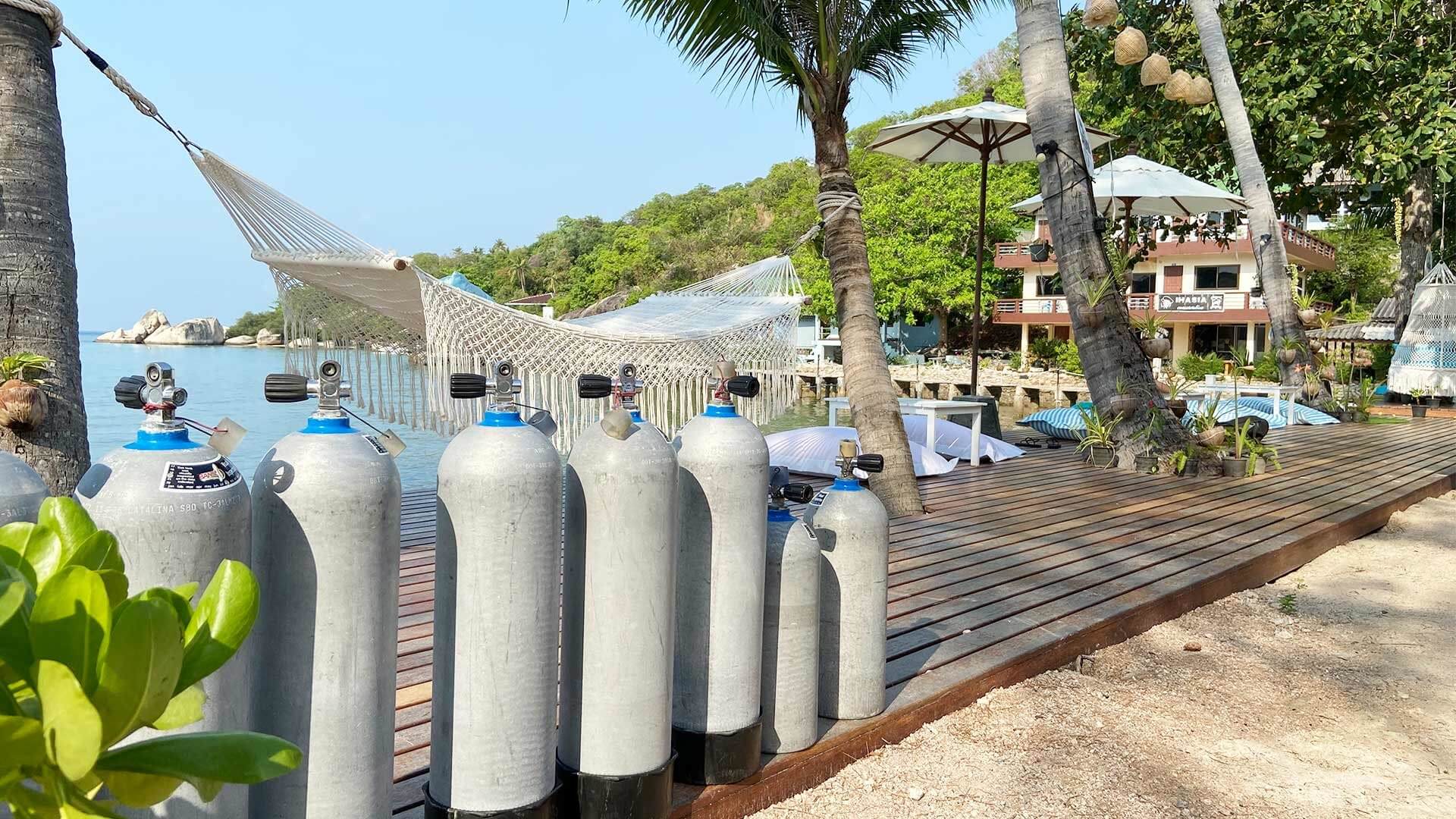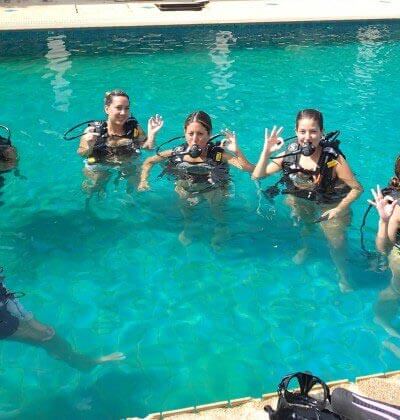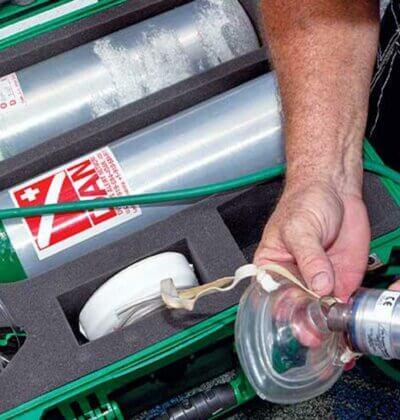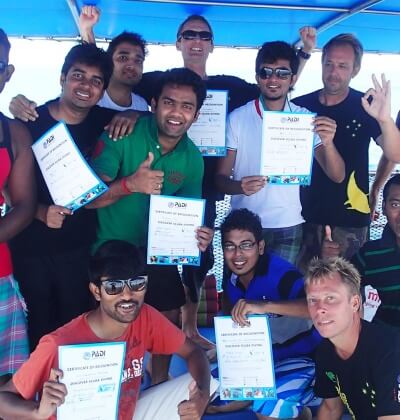Nine Expert Tips to Safer Scuba Diving
The scuba diving industry loves to speak positively of scuba diving. We love to talk of the magical marine live and tropical islands. However as fantastic activity scuba diving is, it does come with inherent risks and if the risks are not avoided accidents can occur and fatalities do happen.This is a part of scuba diving we don’t often talk about. Here are Nine Expert Tips to Safer Scuba Diving.
In 2015 Peter J Denoble MD., Dr.Sc, edited a report commissioned by the Divers Alert Network, titles Medical Examination of Diving Fatalities Symposium Proceedings. This report was produced with the assistance of a range of scuba diving experts.
From that report came some guidelines identified by common trends seen in diver fatalities.
What is interesting is the simplicity of the issues and that in fact, all of these guidelines are addressed in our very first scuba diving course, the PADI Open Water Course.
Here are the guidelines as listed in the expert report. You can read the report here.
Ensure physical fitness to dive: train for your sport and be sure that you exercise regularly and follow a healthy diet.
One of the first things you will do when signing up for any PADI course is a Dive Medical. These medicals should be taken seriously and answered honestly.
In the PADI Open Water Course manual they make the following recommendations, maintain physical fitness, keep immunizations current, eat a well balanced diet, recommended a physical examination especially those with predisposed cardiovascular conditions.
Use the Buddy System.
The Buddy System is taught very early in the PADI Open Water Course. PADI make the recommendation that you do not dive alone and as a buddy team you should do the following.
• Plan dives together
• Check each others equipment
• Remind each other of time times and depth limits
• Assist each other if there is a problem
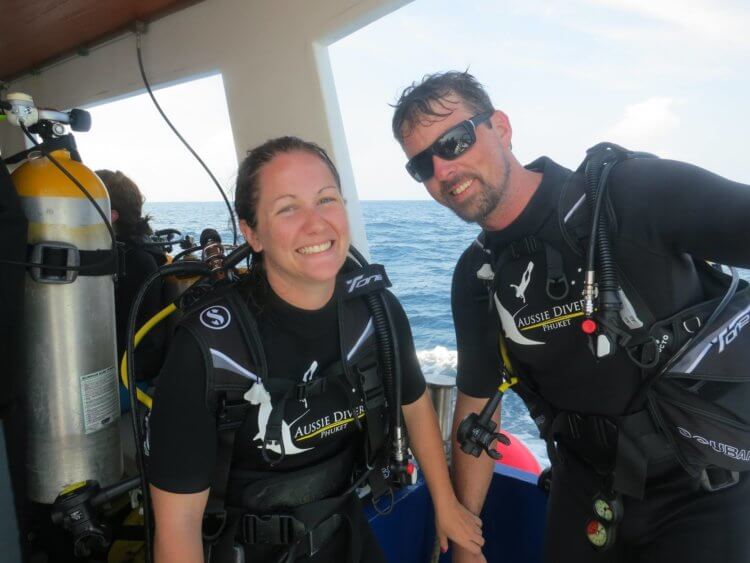
Aussie Divers Phuket Best Scuba Boat Cool Divers
Check your gauges often, respect depth and time restrictions, and do not dive beyond your training limits.
PADI introduced regular gauge checks into the confined water and open water sections of the PADI Open Water Course as a result of the release of the above report.
Random checks are conducted in all training dives and should be a part of any dive conducted by a scuba diver no mater of their experience level.
It is also recommended that dives are concluded with ample air in reserve and enough air should be in reserve for a safety stop and accent to the surface.
Weight yourself properly and remember to release your weights when appropriate.
Proper weighting is taught in the very first confined water session of the course and continued through each confined water and open water dive.
Releasing weights in taught throughout the theory component of the PADI Open Water Course and has it own specific skill, Emergency Weight Drop. This assists in maintaining positive buoyancy at the surface, especially in an “out of air” situation. The Emergency Weight drop was introduced into the PADI Open Water Course after the findings of the above report.
Ensure that your skill level and familiarity are appropriate for conditions.
In section three of the PADI Open Water Course, PADI addresses diving within you limits, stating not to exceed the limits of you training or experience. These limits also apply to dive environments, specialized dive activities (cave or wreck penetration) and or specialized dive equipment.
Diving beyond our personal limits can cause anxiety and uncertainty as some risk may not be obvious. Specialized dives require advanced training in order to recognized and manage risks.
Another important reason to stay within your certification limits is that diving outside your qualifications may void any insurance policy you may policy you may have.
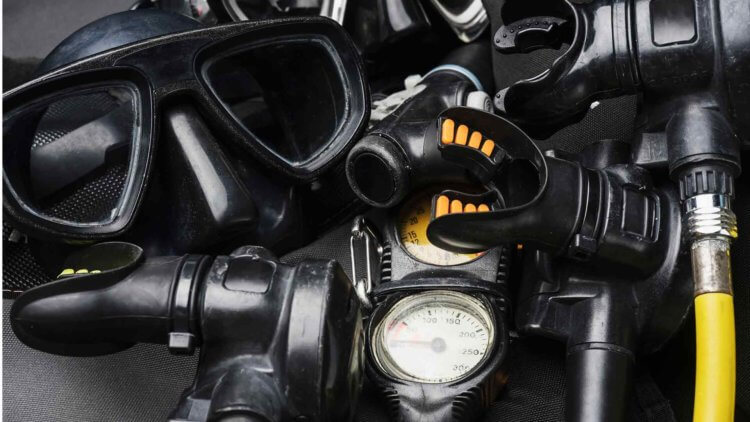
Scuba Gear Aussie Divers Phuket
Have your equipment serviced and maintained regularly.
In Section One of the PADI Open Water Course they make the following recommendation in relation to scuba diving equipment.
They include checking your scuba diving equipment prior to a dive. This includes checking for proper operation and look for signs of wear and damage. PADI highlights you should not dive with any equipment that is not in good working order.
They also suggest that some items (regulator and scuba cylinders) do require parodic inspections by professional as recommended by the equipment manufacture.
Account for all divers (a physical, individual response should be received from every diver before entering/after exiting.
PADI recommends before leaving the dock that there is a roll call for all divers. It is important that the boat leader the names and numbers of divers on board.
Equally if not more important the boat leader should account for every diver at the completion of each dive. This should be done personally and preferably sighting each diver.
This reduces the risk of accidentally leaving divers behind on a dive site.
Avoid overhead environments unless properly trained and equipped.
Similar to an earlier section, diving in overhead environments such as wrecks and caves provide unique dangers that require divers to be specific training.
PADI also make recommendations in their Instructor Manual stating not to take uncertified divers into overhead environments without direct access to the surface.
Not only limiting direct access to the surface, caves and wrecks also provide unique hazards such as silt, disorientation and tight spaces.
Even the most experienced cave divers talk of nervous times navigating through caves and it is not a dive that should be attempted by divers not trained in that field of diving.
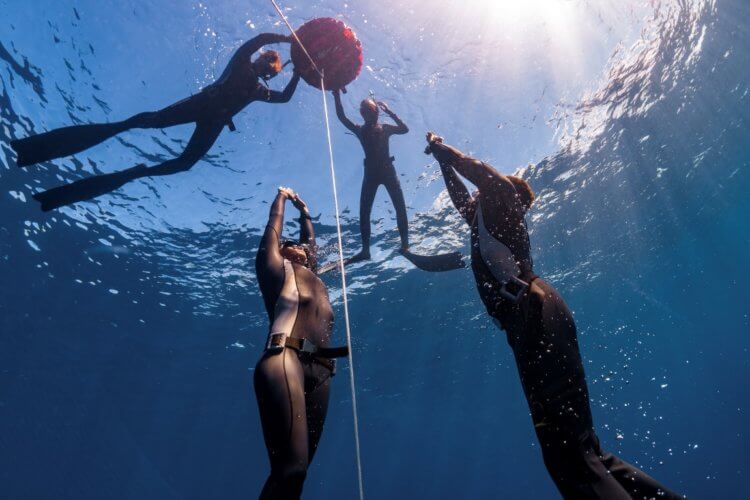
PADI Advanced Freediver Aussie Divers Phuket View
Breath-hold divers should remember to use the buddy system and be aware of the dangers of shallow-water blackout.
Although not scuba diving, the PADI Freediving Course in its first section make firm recommendations in relation to the use of a trained buddy specifically in relation to shallow water blackout.
Shallow water blackout is a loss of consciousness due to hypoxia. Upon assent the diver’s oxygen level drops so low that the diver blacks out. This usually occurs on the last third of the dive. A buddy is essential to the safety of the diver making sure they make it to the surface safely and breath normally once they reach the surface.
Conclusion
As mentioned, these are all basic scuba diving safety rules that are taught in the first courses that a scuba diver does.
By adhering to these expert tips to safer scuba diving lessens the risk of an accident and ensuring that they will be more likely to have a long and accident-free scuba diving life.
Posted in Diving Health on .

